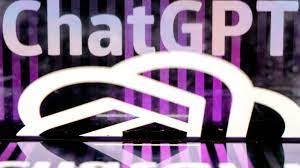Italy signals it could soon lift ChatGPT ban

Rome: The independent Privacy Authority said it’s ready to revoke the suspension if OpenAI, the company behind the chatbot, agrees to comply with its recommendations. But Rome’s landmark decision has already spurred a wave of oversight around the EU and the wider West
Rome mulls lifting ChatGPT ban. On Tuesday, the president of Italy’s Privacy Authority, Pasquale Stanzione, signalled that the watchdog is ready to revoke the chatbot’s suspension by April 30 if OpenAI, the company behind it, agrees to address the concerns it raised.
Those include age verification and updating the chatbot’s privacy policy, which OpenAI had previously agreed to do… … but it was “the plurality, the convergence and the seriousness of the implications of the possible violations” that led the Privacy Authority to suspend the chatbot in late March, an unprecedented instance in the Western world.
In his own words. “The verification of the user’s age is a relevant aspect; we asked the platform to indicate a method that would reduce the risk of misrepresentation,” said Mr Stanzione in an interview with Il Corriere della Sera. But above all, he argued, OpenAI must ensure “that users are clearly informed that their data is being used for a specific purpose, i.e. the training of the algorithm.”
Mr Stanzione indicated that the ban lift would depend on OpenAI’s “willingness to take useful steps […] It seems to me that there is [willingness] on behalf of the company, but we’ll see.”
These problems are not unique to ChatGPT and might be relevant for other apps, namely TikTok, which had struggled with age verification and already attracted the watchdog’s attention.
That’s the technical difficulty, remarked Mr Stanzione, noting the Authority’s goal is to “get platforms to study safer methods” of age verification that do not entail providing documents.
Still, the watchdog believed that the ChatGPT matter called for a unilateral ban “because urgent action was needed, as a European decision would have entailed a delay of at least three or four months.”
It’s bigger than Italy. The Italian watchdog’s widely-watched actions have spurred several other countries to investigate ChatGPT’s potential privacy violations. As President Stanzione stressed, “we are moving on the basis of the European Data Protection Regulation” (aka GDPR).
On Monday, EU lawmakers called upon world leaders to convene for an ad-hoc summit and find ways to control the development of advanced AI systems, noting they are developing faster than expected and fearing the emergence of lasting negative social impacts.
The EU’s privacy watchdog, which unites all national Privacy Authorities, set up a task force on Thursday; it’s a potential first step toward a common policy on setting privacy rules for AI and might end up impacting the upcoming AI Act, which is still being fleshed out by EU lawmakers.
Meanwhile, several countries (including France, Ireland, Germany and Japan) are studying the Italian case; Spain’s data watchdog opened a probe, as did Canada; and US President Joe Biden called on tech companies to make sure their products are safe.





